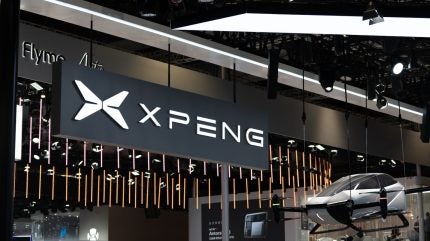
Chinese EV maker Xpeng plans to introduce a robotaxi service in partnership with Alibaba’s mapping unit, Amap.
The company intends to deploy three self-developed autonomous taxi models, using its proprietary Turing chips to handle computing for the vehicles.

Discover B2B Marketing That Performs
Combine business intelligence and editorial excellence to reach engaged professionals across 36 leading media platforms.
Pilot operations are targeted for 2026.
Under the agreement, users will be able to book driverless rides via the Amap app.
The Guangzhou-based company intends to debut its robotaxi services in China before expanding abroad, The Wall Street Journal reported, citing co-president and vice-chairman Brian Hongdi Gu.
The US is not currently part of the rollout plan.
Gu said: “It’s too early to consider the US market for now because technology, cars and software are all facing some constraints in the US.
“It’s a bit early to directly use China’s software and hardware all together with products in the US.”
Gu also outlined the company’s broader ambitions beyond electric cars, indicating that humanoid robots and flying vehicles are part of its product pipeline.
Gu said: “We didn’t want to be a traditional automaker or EV maker from the very beginning.
“The future of cars is not electrification but intelligence.”
Xpeng has been advancing its semiconductor strategy, with reports in June indicating it was working to integrate its Turing AI chips into some Volkswagen models slated for launch in China next year.
The company expects additional carmakers to adopt its chips for autonomous driving functions.
In May, Xpeng partnered with Plugsurfing, an European EV charging service provider, to offer its customers access to an extensive charging network.






